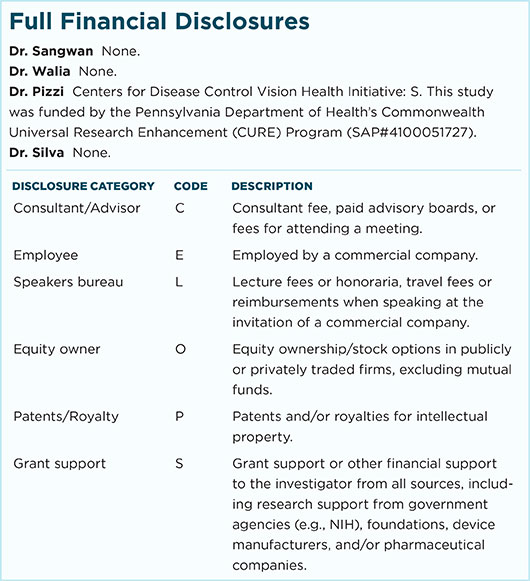Download PDF
If you want your glaucoma patients to keep their appointments, a personal phone call and letter can help. It worked for patients in a randomized study at the Wills Eye Hospital Glaucoma Service who received personalized appointment reminders.1 Those patients (n = 130) were 23% more likely to keep their appointments than patients (n = 126) who did not receive such reminders. Baseline demographics were similar in the 2 study groups: A large majority of the patients were African-American, older than 65 years, and diagnosed with primary open-angle glaucoma.
Low tech, high touch. Appointment adherence is critical to glaucoma care, which is predicated on monitoring disease progression and therapeutic regimen efficacy, the investigators noted. Yet prior to the study, approximately 30% of patients at the participating clinic were lost to follow-up. They either canceled appointments without rescheduling or simply did not show up.
“In our study, a very simple personalized appointment reminder consisting of a brief phone call and letter proved to be a low-cost approach to improve adherence to glaucoma appointments,” said coinvestigator Laura T. Pizzi, PharmD, MPH, applied health economics researcher at Thomas Jefferson University.
Balancing the costs. The study did not address visual outcomes or long-term cost implications, but Dr. Pizzi cited other research estimating that the cost of glaucoma care rises considerably as the disease advances.2
“Assuming one agrees with the assertion that improved adherence to glaucoma care delays long-term consequences, there is an economic argument to be made in support of low-cost adherence reminder programs,” she said. At $11.32 per patient, such outreach is a worthwhile investment in reducing the long-term cost of vision loss, the researchers suggested.
While a dedicated appointment staff may be too costly for most ophthalmology practices, Dr. Pizzi suggested that existing office staff could be deployed to give personal reminders. In addition, the study assessed different models to potentially lower costs through use of volunteers. “The American health care system is complex and often impersonal,” she said. “This study supports the idea that giving patients personal attention is a powerful motivator toward their engagement in care.”
—Miriam Karmel
___________________________
1 Pizzi LT et al. Appl Health Econ Health Policy. Published online Feb. 29, 2016.
2 Lee PP et al. Arch Ophthalmol. 2006;124(1):12-19.
___________________________
Relevant financial disclosures—Dr. Pizzi: Centers for Disease Control Vision Health Initiative: S. This study was funded by the State of Pennsylvania CURE grants.
For full disclosures and disclosure key, see below.

More from this month’s News in Review